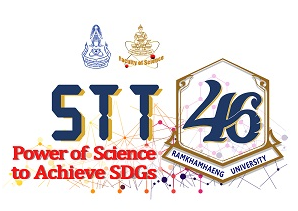Symposiums

360° COVID-19
Chair: Prof. Sopit WongkhamCoronavirus disease 2019 (COVID-19) pandemic has ravaged all regions around the world creating serious global health crisis. Coronavirus disease or COVID is caused by coronavirus (CoV) include other well-known diseases such as Severe acute respiratory syndrome (SARS), and Middle East respiratory syndrome (MERS). For COVID-19, it is caused by Severe acute respiratory syndrome coronavirus 2 (SARS-CoV-2), which was first reported last December from Wuhan, China. Until today, more than 25 million confirmed cases of COVID-19 and more than 800 thousand deaths have been reported across the globe. The pandemic has caused great negative social and economic impacts of our generation, which must be extinguished as soon as possible. To accomplish this, knowledge on the molecular mechanisms of the disease, improved methods for screening and diagnosis, and also preventive and therapeutic measures are urgently needed. This symposium brings together leading COVID-19 Thai researchers whose work encompasses everything that will help support the fight against COVID-19 pandemic.
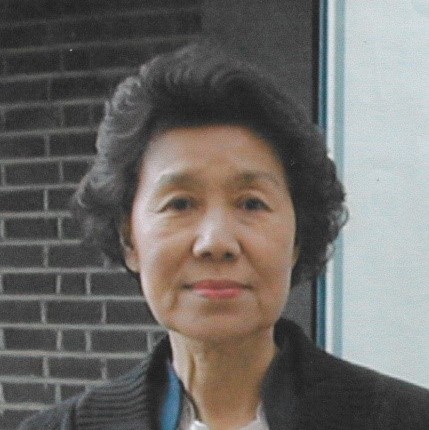
Biodiversity of Marine Benthic Fauna
Chair: Prof. Supawadee ChullasornThe purpose of this symposium is to bring researchers from all around the world to share and discuss the taxonomy and ecology of marine benthic fauna. Marine biodiversity includes coastal and marine benthic invertebrates, as well as their genetic variety, habitats and ecosystems. Benthic fauna refers to various organisms and are divided into two groups: Epifauna, which lives on the surface of sandy beaches, mangrove forests, seagrass beds, algal beds, coral reefs, etc., and Infauna, which lives within the sediment of those habitats. This symposium will focus on morphology, evolution, diversity and distribution of sediment-dwelling, e.g. Harpacticoid copepods, Nematodes, Polychaetes, Amphipods, Isopods, etc. Finally, we would like to welcome you to this symposium to share and learn many new aspects of marine benthic fauna.
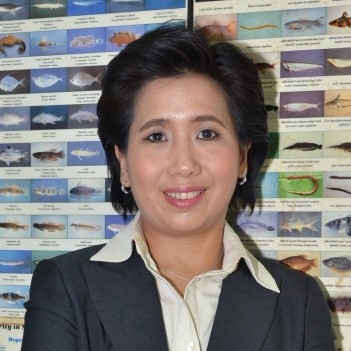
Climate change in a changing world
Chair: Assoc. Prof. Dr. Suchana ChavanichOver the last decades, our environment has been threated and impacted globally by the climate change. People are experiencing both partial and severe effects of the climate change. How does the change impact local and global scales? How does the climate change affect the outcome of biological, ecological, and/or socio-economic trajectories in the changing world? What are the key knowledge gaps that must be urgently addressed for a better management? This session welcomes presentations on both basic and advanced research topics related to climate change including but not limited to impact, warning, adaptation, reduction, and solution.

Crystallography
Chair: Prof. Dr. Nongnuj MuangsinX-ray crystallography is the experimental science and is by far the most powerful method to determine the arrangement of atoms of a crystalline solid in three-dimensional space. This method has been used in structural chemistry and biological macromolecules for over a century. In the biological crystallography, three-dimensional structures of molecules such as proteins and nucleic acids are determined at atomic level. This helps us to understand the basic mechanisms of biomolecules, as well as aid in novel drug discovery. In chemical crystallography, the determination of crystal structures of organic, organometallic and coordination compounds (i.e. coordination polymers and metal-organic frameworks) is of great importance and highly valuable for understanding the structure-property relationship as well as supramolecular interactions (such as hydrogen bonds, halogen bonds, and π–π stacking) of the crystalline solids. Moreover, it also brings about crystal engineering for better structural design and achievement of desired functionalities.
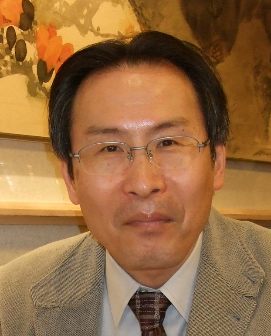
Development of Material Science Based on Coordination Compounds
Chair: Prof. Dr. Takumi Konno
In the past decades, a large number of coordination compounds have been prepared from a variety of transition metal ions in combination with organic and/or inorganic ligands. In many cases, intra- and intermolecular non-covalent interactions strongly affect the overall structures of the resulting compounds to induce unique functionalities. Thus, the controlled introduction of non-covalent interactions in coordination compounds is greatly desirable for the future innovational development of material science based on coordination chemistry. This symposium will focus on coordination systems, in which intra- and/or intermolecular non-covalent interactions, such as hydrogen-bonding, metallophilic, π-π, and ionic interactions, play an important role to their structures, properties, and functionalities.
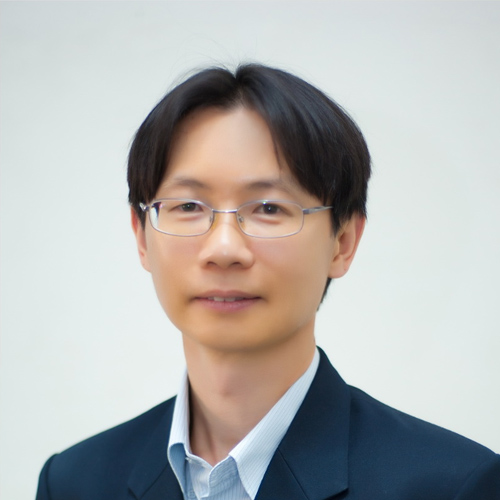
Emerging Trends of Quantum Technology
Chair: Assoc. Prof. Dr. Anucha Watcharapasorn
Quantum mechanics has entered its second generation where nondestructive individual manipulation and measurement of trapped quantum systems are technologically accessible. Precipitately, disruptive industrial revolution has been realized among scientists and engineers; the result of close collaboration aiming for deep technologies are evidently marvelous. Financially stimulated by numerous parties on a global scale, new breed of scientists who are fluent in quantum mechanics as well as broad engineering skillset uninterruptedly builds up to undertake practical quantum technology. Here, updates on quantum research activities and recent development in accordance with creating a quantum ecosystem are centralized for discussion. All opinions from multi-disciplinary scientists are appreciably invited to participate in this symposium.

Flattening the Curve - Renewable Energy in Times of Climate Change
Chair: Asst. Prof. Dr. Helmut DuerrastClimate change is an ongoing and accelerating threat to mankind, and although developing countries, like Thailand, in the past might not have contributed to the greenhouse gas emissions like others, they will likely experience its impact severely, from droughts, over extreme weather phenomena, to sea level rise. Therefore, the ultimate goal for the next two to three decades has to be a complete decarbonization of the energy, transport, cocking, and cooling/heating sectors through the rise of renewable energy sources, in Thailand mainly solar PV, some wind, hydro, biomass, and geothermal; the latter one has a potential in Thailand, although comparable small, as it is a continuous and time independent source. As the future will be mainly based on electrical energy, it will be supported by a decentralized and intelligent grid structure.

From Thailand to Antarctica: the 2020 Thai-Australian Expedition for Space Science
Chair: Dr. Alejandro SáizBetween January and March 2020, two scientists from Mahidol University, Thailand, joined the annual expedition to the Australian base of Mawson, Antarctica. Our mission: to perform several upgrades in the Mawson Cosmic Ray Laboratory, the oldest cosmic-ray-science experiment running continuously until the present time in the Southern Continent. After the successful installation of updated software and electronics firmware and some extra neutron detectors, the data obtained from this experiment has been expanded to include, besides the existing measurements of cosmic ray flux, new information about cosmic ray energy. During this long trip onboard the Aurora Australis icebreaker, we also learned about other scientific projects in the Australian Antarctic Program. In this talk, I will present some details about my once-in-a-lifetime experience of visiting Antarctica and the scientific motivation for such an adventurous journey.
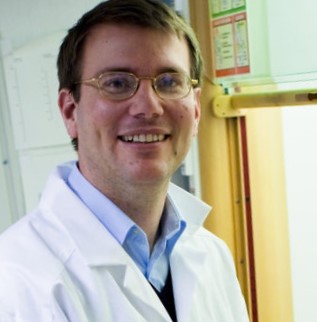
Green and Sustainable Chemistry: Opportunities for Academia and Industry
Chair: Prof. Dr. Joseph Samec
Even if climate change may not stop us from using fossil fuels, the supply will within 50 years according to BP:s latest report (https://www.bp.com/content/dam/bp/business-sites/en/global/corporate/pdfs/energy-economics/statistical-review/bp-stats-review-2019-full-report.pdf). Thus, we will need to find a new feedstock for our needs for producing chemicals for: food-, material-, transportation-, pharmaceutical production. The non-eatable part of biomass, lignocellulose is such a source that grows widely in both agriculture (stems, husks, etc) and in forestry. In addition to this, chemists will need to build up fundamental understanding and develop new methodologies and processes. This session will discuss how academia and industry can collaborate to smoothen this transition and welcomes papers regarding topics on Green and Sustainable Chemistry: -from fundamental studies to industrial implementations.
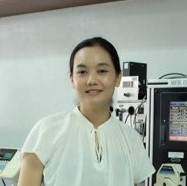
Green Production Platform for Renewable Biomass Conversion
Chair: Assoc. Prof. Dr. Nuttha ThongchulRecently, bioprocessing and bioproducts have gained commercial interest due to the perceived “GREEN” benefits of using biomass rather than fossil-based feedstocks for the production of chemicals and industrial products. Other key benefits of bioproducts include the sustainability of renewable biomass, replacing depleted fossil energy and reducing greenhouse gas emissions from the petroleum based chemical and energy industries. With the rising crude oil prices and advances in industrial biotechnology, the potential of biomass utilization becomes huge. This symposium will feature the important applications in biotechnology and recent developments in bioprocessing technologies for biomass utilization. All papers from both academia and industry relevant to development of bioprocessing platform development using the tools of molecular biology, genetic as well as metabolic and process engineering are invited.

Hydrogen Energy
Chair: Prof. Dr. Suttichai Assabumrungrat
Hydrogen has become a promising choice of clean and reliable energy carriers for sustainable development of the world. This symposium welcomes researchers, scientists, engineers and professionals from all over the world to present their latest research results, challenges and new ideas in the field of Hydrogen Energy. Topics include, but not are limited to, hydrogen production, hydrogen storage, hydrogen supply chain, hydrogen applications and hydrogen-related technologies.

Lichens: Diversity, Ecology and Biomonitoring
Chair: Assoc. Prof. Dr. Achariya RangsirujiLichens consist of fungi that live in a biological relationship with algae or cyanobacteria. Lichens are key players in a variety of environmental processes. Found from cold regions such as polar regions to extremely hot areas like deserts, there are approximately 20,000 species worldwide. There are currently many researches focusing on understanding the nature of lichens. The entire field of research in lichenology, from using genomic approaches to understand the lichen symbiosis to the ecological roles for enhancing our knowledge in diversity and evolution of lichens and applied aspects, such as the use of lichens to monitor air pollution and climate change as well as novel products. This symposium aims to bring together researchers, research scholars, students and those interested to exchange and share their experiences and research results on all aspects of lichen. It also provides a premier interdisciplinary platform for researchers, practitioners and educators to present and discuss the most recent innovations, trends, and concerns as well as practical challenges encountered, and solutions adopted in the fields of lichenology.

Marine Plastic Abatement
Chair: Prof. Dr. Thammarat KoottatepPlastic waste becomes an issue of global concern as indicated by severe plastic pollution in both terrestrial and marine ecosystems in several countries, mostly lacking of efficient plastic waste policies, management systems, and technologies. This growing concern is about the use of plastics and their effects on the environmental pollution and human health. Innovation is a key solution to address the challenges and bring plastic management towards sustainability. This session focuses on the processes in dealing with growing environmental issues of plastic wastes covering efficient utilization, reuse, recycle, recovery and reduction. The session will contribute to all aspects of plastics waste processing and disposals including technical and non-technical aspects that encompass multidisciplinary researches on how plastics entering the environment, and the risks plastics pose to wildlife, human and aquatic communities.

Natural Products for Drug Discovery
Chair: Prof. Dr. Vatcharin RukachaisirikulNatural products (NPs) have played a key role in drug discovery research, as the chemical structure diversity and wide-ranged biological activities of NPs make them the most valuable sources of drugs and drug leads. About 40% of all medicines is either natural products or their semi-synthetic derivatives. NPs research continues to explore a variety of lead structures, which may be used as templates for the development of new drugs by the pharmaceutical industry. Most efforts on NP-based drug discovery have involved a screening of biological samples for desirable bioactivities, the compounds’ isolation and characterization followed by drug design and synthesis based on natural compounds. Advances in bioinformatics, structural biology, proteomics, genomics and metagenomics, and analytical technologies, such as high-throughput screening platform, have recently contributed to the rapid identification and characterization of NPs leads. Accordingly, this symposium seeks submissions from scientists, researchers and graduate students to share their latest research findings in the field of natural products. Contributions should be related to isolation and structure elucidation, chemical biology, medicinal chemistry, chemical methods, chemical synthesis and drug design.
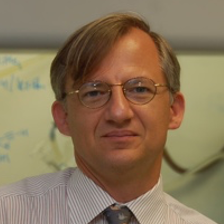
Promoting Research Integrity
Chair: Dr. Roderick BatesProgress in Science and Technology is based upon trust. We trust that researchers whose work we read or use have been honest, balanced, unbiased and fair. This trust is undermined when we hear of cases of fraudulent or fabricated work, by instances of plagiarism, by disputes over credit and authorship, by the omission of necessary controls and procedures, and by the nefarious activities of predatory publishers. To retain trust, and especially the trust placed in researchers by society, academic institutions have to promote research integrity amongst their faculty, students and staff. How can this best be done, and what are the best practices that can be adopted?
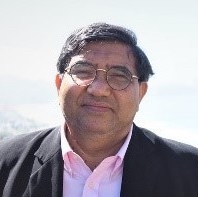
Science-based Sustainable Tourism
Chair: Dr. Thamasak YeeminThe tourism industry continues to be a very important sector for the economic development of many countries around the world. Sustainable tourism should make optimal use of environmental resources that can maintain essential ecological processes and conserve biodiversity. A strategy to create integrated planning systems for managing sustainable tourism is using science-based data. Scientific knowledge plays an important role for understanding ecosystems related to tourism and how to sustain their functions. In this symposium, scientists and managers working in Thailand and other countries are gathered to present their experiences from research, management, monitor and conservation aspects, focusing on sustainable tourism. Some lessons learned from terrestrial and coastal tourist destinations will be highlighted, including a capacity enhancement for monitoring and research, community-based management, ecotourism and marine protected areas.
